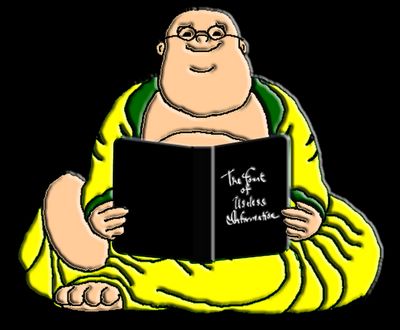Blink: The Power of Thinking Without Thinking is the second book I have read by Malcolm Gladwell recently. While The Tipping Point dealt with small factors causing large differences, Blink details the unconscious thought that occurs in a fraction of a second. We all deal with this in many different ways every day. Gladwell uses examples to demonstrate the impact, both positive and negative of this unconscious thought process.
When, as discussed in the book, antiquity experts recognize a statue as a fraud upon first glance despite evidence to the contrary, they are using that almost instantaneous, unconscious ability. How did they know it was fake? What could they possibly have seen in such a short period of time that would let signal fraud? I don't know, and more remarkably, neither did they. Could I have done the same thing? No, anything I said would have been nothing more than a guess because I don't have the knowledge from which to draw. Even without conscious thought, you have to have the appropriate expertise. I could no more have determined the authenticity of the statue than I could have known from the way a professional tennis player begins a serve that he was about to double-fault, as a tennis expert in the book is described as doing.
While these are fascinating and even useful, there is a downside to this unconscious thought. Instinct is based on what we have been given over time and is influenced by not only our feelings, but the feelings of others around us as well. When someone talks about going to the doctor, most people will immediately assume that the speaker's doctor is male. We make similar assumptions about race, weight, height, age and pretty much anything else you can determine quickly. These may not reflect your true feelings, but they are "implicit associations" coming from your unconscious. If you want to see what some of these are like, you can take some Implicit Association Tests (IATs) at this site. A warning, however, the results may make you feel a little uncomfortable. I have to admit I was particularly amused when Gladwell said that on the Race IAT he tested as having a moderate preference for whites then stated, "But then again, I am half black." The views of the societies we live in filter in to all of us even if we don't want them to.
The book concludes by discussing the ways to use and control the "Blink" phenomenon of unconscious thought. If you can learn to tune out the preconceived notions and tune into the actual insight, this can be an amazing tool. Of course, if you figure out how to do that, let me know.
Like The Tipping Point, Gladwell does an amazing job of taking concepts that could be confusing and presenting them in a manner that is easily understandable irrespective of one's scientific background. Also like The Tipping Point, I am going to end my review by recommending this book to you. Go the bookstore and buy it, go to Amazon and order it, go to the library and borrow it or go to a friend's house and steal it, but get a copy and read this book.
Not that I've finished this, I suppose I should get to reading Northanger Abbey, since I have a book club discussion about it at the end of the month.
The Verdict: 3 stars. Highly Recommended.
Until later...
March 08, 2005
Book Review: Blink
Subscribe to:
Post Comments (Atom)


No comments:
Post a Comment